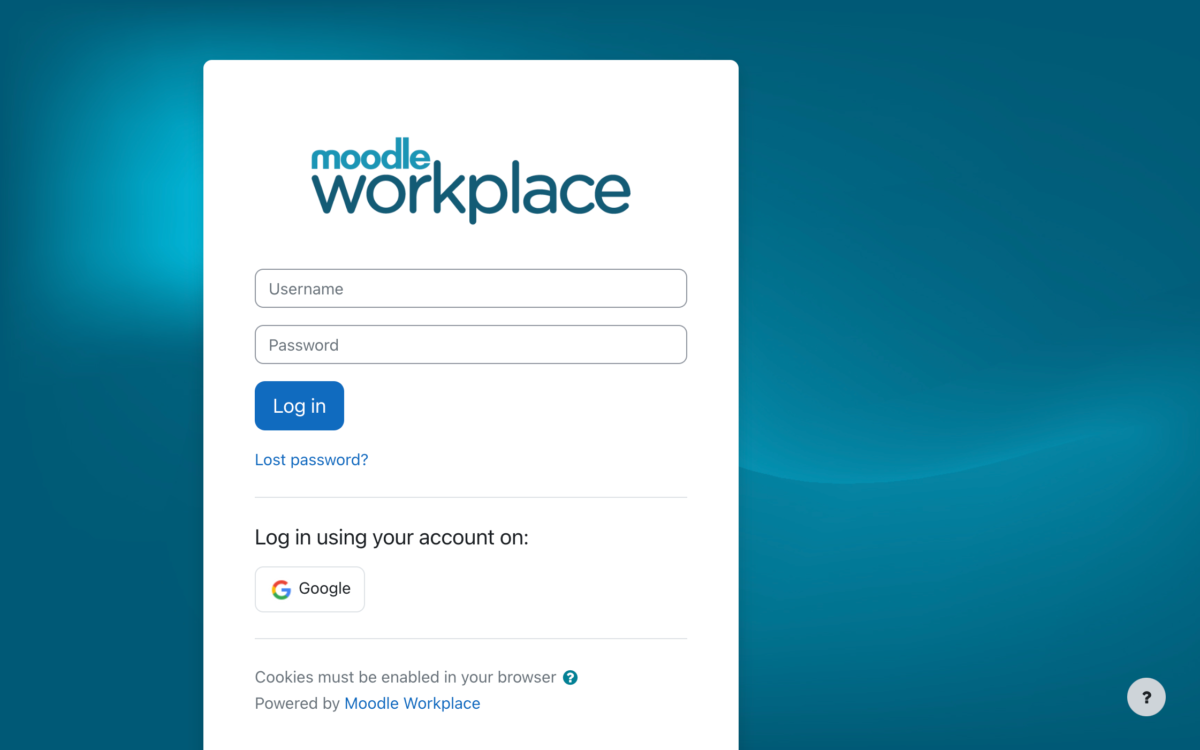Investing in a Learning Management System (LMS) can be a difficult and time-consuming process for any decision maker. For reasons of both time and money, making the right decision the first time around is highly desirable. To avoid mistakes, it is recommended that your organisation give the following 5 points careful consideration.
1. Consider organisational need and budget for a LMS
A LMS enables the management and flexible delivery of content for online learning. However, it is more than a tool for content delivery. It enables the administration, documentation, assessment, tracking and reporting of educational content and training programs. Assessment of your organisation’s need for an LMS is essential as it may mean significant allocation of financial and human resources.
A LMS is not necessarily for every organisation. If you need to track and report learning and training outcomes there are many LMS options available. This is particularly true for regulatory and compliance training in corporate and government settings. Schools, universities and registered training organisations may use an LMS for its synchronous or asynchronous teaching and assessment tools. On the same token, a LMS is a good option for organisations in the corporate, government and non-profit sectors, with relatively large user bases and training budgets.
If you are a startup or a relatively small organisation with a limited budget, then a LMS may not be a good choice for you. Although an open source LMS such as Moodle is free to download and install, there is an associated cost involved in having it properly installed, configured, optimised and secured in a hosted environment. Furthermore, if you have never used an LMS before, there is a cost involved in getting expert training and support.
For on-going success, it it paramount that a budget is well thought out. A common mistake we often encounter is an organisation’s need to spend money (funding) for a financial year, without properly investigating if funding will be available in the coming years to maintain and grow the system. Bear in mind, that your organisation may not be afforded a taste for champagne with a beer budget.
2. Key staff for success
The ongoing success of your LMS rests on two things – funding and people to drive the system. It is vital that all key stakeholders are consulted before rushing out and purchasing a system. For long term success, it is essential that your advocates and champions are on board. Who are your stake holders? They may be senior management, IT, HR, system administrators, staff, clients or external users.
a) Many projects fail where funding has run out or the project wasn’t properly budgeted for in the first instance. A persuasive business case to senior management centred on creating smarter employees and a measurable competitive advantage for companies is important. You must be able to demonstrate that a learning management system will add value to your business.
b) If your IT team is resistant to change or is left out of the procurement process, you could be in trouble. IT can make life difficult by dismissing ideas or applications that they have no control over, so it’s imperative to involve them at the outset. In addition, the IT team can help you ask the right questions in the decision making process. Consequently, they could also insist on running the entire show, so depending on your organisation’s IT culture, it may be better to negate them altogether if you decide to outsource to a third-party provider.
c) Properly trained staff or system administrators are essential to success. Depending on the size or your organisation you may need more than one trained system administrator to manage the system as well as supporting new users. Any piece of technology is useless without properly trained staff to use and get the most out of it.
3. System Scaleability
If you’re planning on using the LMS heavily for online training, especially training with SCORM content, embedded videos and graphics, you’ll need plenty of data allowance and bandwidth for the LMS content and the number of users who will access, contribute to or download the content. Most organisations make the mistake of focussing on their needs at the time of deployment without thinking about what their needs might be in 6 to 12 months.
Serious consideration should be placed on the possibility of adding users and courses in the future. Choosing a cheap hosting provider on the basis of price is a flawed metric if you fail to may not understand how to install, configure, optimise, secure and support your learning management system software. Evaluating the current and future learning needs of your organisation will allow you to have a better concept of the scaleability your LMS system should have.
4. User Capability
Assessment of the technical capability of the end user is paramount. Are they technically proficient? Is your intended audience comfortable with using a computer and software? There many organisations with staff that are resistant to technology – accessing computer based learning is a major source of angst and confusion. On the other hand, your staff may be technologically savvy, having grown up using computers and social media.
It is likely the your organisation will have a mix of the two types of learner. Depending on your assessment findings, you may need to choose a LMS that is plain and simple or one that has more social interaction capabilities and engaging content. The aim is not to alienate your learners by choosing a solution that might not fit with your company’s learning culture.
5. Vendor Track Record
It is important to base your purchasing decisions on more than a flashy website or sales fluff. More important than bright lights and fancy marketing is finding a vendor with customers that are similar to your organisation. It is a good sign that the vendor has actually implemented an LMS in a similar environment, the clients are happy with the results, and may be willing to talk to you about it.
Finally, if your budget allows for it, we highly recommend engaging a learning expert in consultancy. Consultancy as a service, helps an organisation better understand the place learning and training has in its organisation and the values of engaging user focused e-learning as an overall business strategy.







